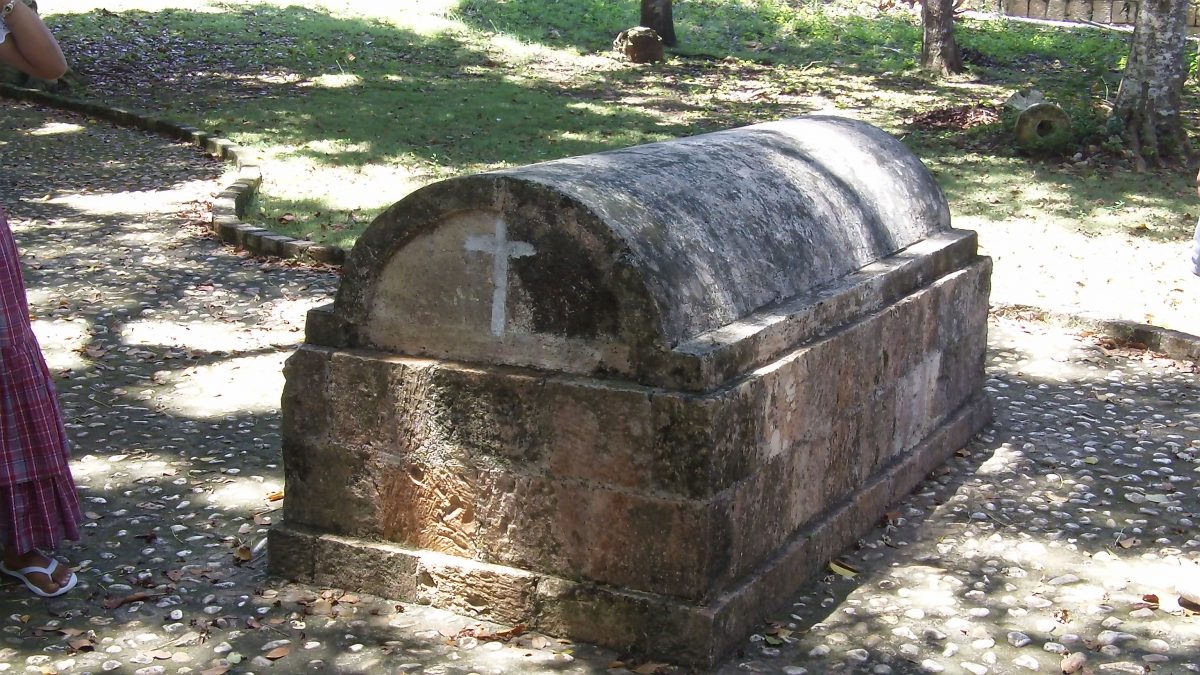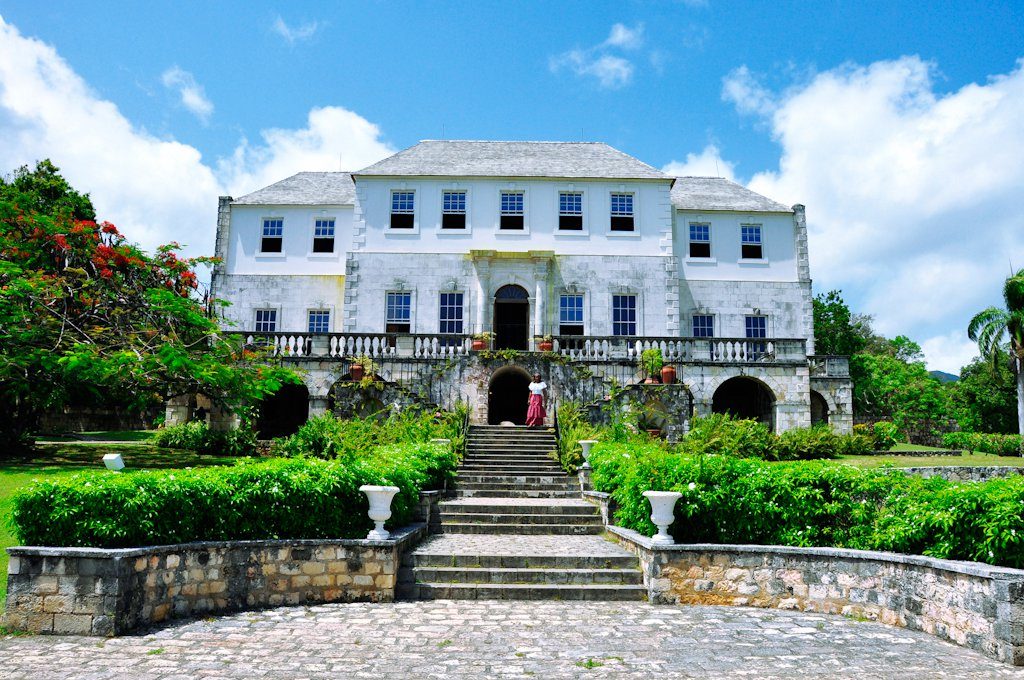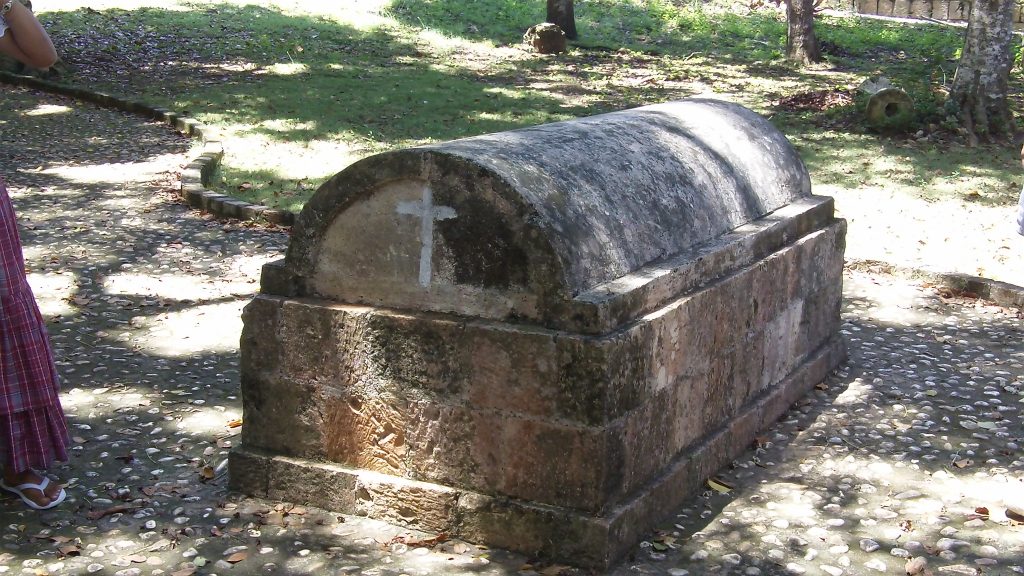I just finished the White Witch of Rose Hall which I read in preparation for an upcoming trip to Jamaica. I love history and researching Montego Bay learned that one of the only surviving plantation estates is Rose Hall. According to my research the only reason it survives is that former slaves were afraid to go near the place and torch it due to the supposed ghost; they torched all the other slave owning plantations shortly after gaining freedom.
The legend goes that the spirit of Annie Palmer, a former proprietor of the sugar plantation who killed three husbands, still resides in and haunts the house. Unfortunately this legend also seems to have been debunked by famous septic Benjamin Radford in in 2007. That sure takes some fun out of it but we’ll still visit and I thought reading the book, which Benjamin says this legend is based on, by Herbert G Lisser would be beneficial.
Wikipedia entries:
Rose Hall: https://en.wikipedia.org/wiki/Rose_Hall,_Montego_Bay
The Ghost: https://en.wikipedia.org/wiki/White_Witch_of_Rose_Hall
The first thing I noticed about my copy of the book is that there is a name and address of a previous reader, Don and Sandra Carter who went to Jamaica in September 1975. I know this because they wrote it just below their names on the first page. I think it is fascinating that I’m reading the very same book that Don and Sandra did approximately forty years ago. I looked them up on the internet and Don still lives at the same address, no word about Sandra. Their names in this book is a further testament to the quick passage of time and how very soon, my own trip to Jamaica will have been forty years ago. I hope your trip was wonderful Don and Sandra!
The book was entertaining but what I really liked is how it gave me insight into the lives of the slaves as well as life for white plantation owners. It helped me better understand a place in this world of which I have absolutely no knowledge.
A lifelong liaison with the girl, and children, and drink, and no real obligation to work (which might mean more drink and other liaisons), what was there in all this save the deterioration of a young fellow who had fine instincts and was a gentleman? In the tropics some men throve; those were the men of stern fibre or of a sort of brutal hardness. These tropics, with their large servile population and small aristocracy of proprietors who lived in a world of the narrowest mental and moral horizons – what a horror they actually were! If they did not become physically the white man’s grave, they formed for him as a deadly a spiritual sepulcher. It was death anyway.
This quote reminds me very much of life for many expatriates in Vietnam when I was there from 2004 – 2006. It was easy to live there on a pension; with no working, or any responsibility at all for that matter, everyday was one of leisure; it was all alcohol and sex and quite a few of them have passed away these past ten years due to this lifestyle.
About twenty yards away a concourse of people crouched upon the ground, forming a rude circle, and within this circle blazed a great fire which hissed and crackled and threw fierce sparks upwards and brought into fiery relief the strained, staring faces of the men and women from whose lips streamed forth an eerie, curious sound. Bodies swayed to right and left in unison with the rhythm of that chant, and the drum-throbs marked the cadences of the hymn of exorcism. It was nothing that even Rider had ever heard before, no Christian words or air; it was something that had come out of Africa and was remembered still. There were people in the swaying crowd who had been born in Africa, and in their minds and emotions they had travelled back to that dark continent tonight and were worshipping again some sinister deity with power and will to harm, one to be propitiated with sacrifice and who would not be turned aside from his designs by mere appeals and prayers for mercy.
Reading the above I feel like I’m actually there. I think about the unfortunate slaves who were caught by slavers near the coasts of Africa and how awful that must have been to be ripped from their families and forced into a terrible life in a far away land. One can read all about slavery but to really contemplate it and what happened to so many people, causes me a lot of sadness. Africa is often called “the dark continent” because it is so large and penetrating its interior very difficult. Calling it a ‘dark continent’ brings a bit of fear to a white man’s mind. I’m sure these slaves who were ripped from their families do not think of it as a dark continent at all; that is a white man’s invention.
And so the passage above represents the idea of the continent from a white man’s mind: it is mysterious, fearful, unknown, something to be dreaded. Africa is still an enigma and white man’s interference has wrought little more than mystery and suffering like so many other places on the planet.
Other than the two above I do not have any more passages to quote from the book. I am looking forward to the visiting this historical house even if the stories about the ghost is completely false. I think with all the suffering that occurred there that spirits might be present anyway. Plus there is a coffin which research tells me is Annie’s, yet conflicts with the skeptic Mr. Radford’s assessment that Annie is completely made up. It is certainly a coffin so whose coffin is ‘Annie’ doesn’t exist? It looks pretty authentic so I’m pretty certain it wasn’t put there just for show.
*Apparently there was an Annie Palmer in Jamaica but completely unrelated to Rose Hall and so this poor woman’s name is scandalized in order to keep up a false legend and sell more tickets to tourists.
Anyway, I’m looking forward to the tour, the history, trying to feel any trace of its former inhabitants as well as the bar downstairs which might help with any spectral communication. I hope I’m wrong but the drinks will probably be weak yet very expensive. I hope they prove me wrong!
*Notes:
Dating from the 1700s, Cinnamon Hill was once owned by the family of 19th-century poet Elizabeth Barrett Browning of “How do I love thee. Let me count the ways.” It is now restored to its former glory as a gracious plantation home.
In the mid-1970s the country music singer Johnny Cash bought the house from his friend, American businessman John Rollins. Johnny Cash and June Carter Cash were part-time Jamaica residents for more than four decades. Intrigued by the legend of “White Witch of Rose Hall,” Johnny Cash wrote the “Ballad of Annee Palmer.” During the Rose Hall Great House tour, you can hear this haunting ballad sung by the guides.


